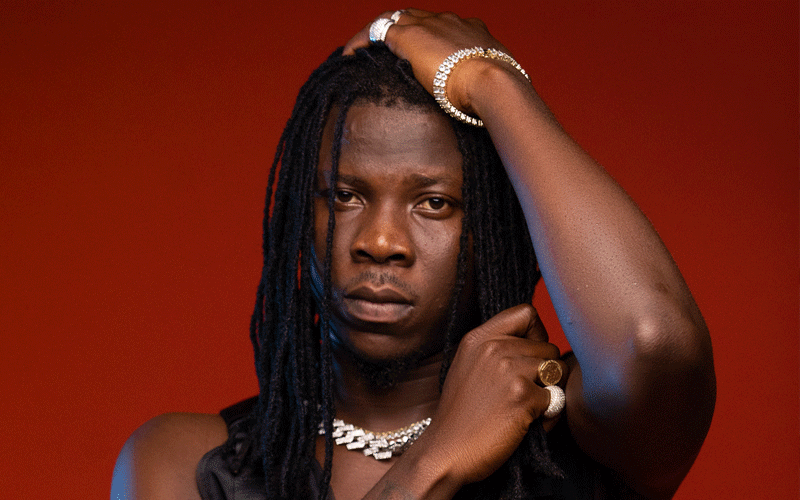‘Big boys’ take seat at the African music’s table

Africa’s music industry is attracting foreign investors as it yields into a multi-million-dollar generating trade. With the ancillary events and business opportunities arising around it, the continent’s music sector is projected to be a lucrative ‘globalesque’ profit machine, writes Jackson Onyango
It is not a secret that Africa as a talent hub is quickly growing into the crux of world entertainment, if not yet, soon.
In the last decade, the jostle for and awakening to African talent has gotten real and interestingly competitive.
In the arts sector, not excluding film, television, photography, literature and fashion, music in particular is a universally accepted craft that has always been of global notoriety.
Music as an art form allows individual and collective expression through sound and performance, easily incorporating different cultures, techniques, ideas, beliefs and traditions ranging from fashion and motion (dance and film) to arouse emotion and ideas into the listener’s experience regardless of cultural similarities.
Well-managed musicians reap the fruits of their hard work, and live in comfort if not luxury, hopefully credit-free.
With the digital interuption, talented African artistes are now seamlessly breaking grounds, integrating people of different nationalities and backgrounds, with the elimination of the distance barrier.
“African music has always been a hot property, but now it’s more intense and more artistes are getting involved.
They are also getting their due respect and probably equal playing field with the West.
Even with limitations such as the current Covid-19 pandemic, many artistes who have built networks abroad are collaborating virtually, and this is exciting for African music,” Ghanaian artiste Stonebwoy tells Spice.
In Africa, the modern music scene is growing fast, and its deep ethnic richness and a broad urban diversity allow for a plethora of styles, themes and genres to be produced across the board.
Music unicorn conglomerates Universal Music Group, Warner Music Group and Sony Music Entertainment emerged during the early-mid 20th Century and have had a foothold of global music stars intellectual rights since then, but the Internet is changing the narrative as creative artistes are now accessible with these ‘gatekeepers’ also having to adapt to the power of the underground cable’s accessibility prowess.

Supporting factors that amplify the music industry such as the media, fashion, textile and film industries now have to accommodate the Internet’s role in music business.
“Technology has modified the music business. The services, infrastructure and networks music companies used to offer were expensive.
So, if you can do it yourself, why not?” quips Koch Okoye, music manager and director of Syncs at Immensum Music.
He adds: “The Internet has given artistes this leverage of autonomous decision-making, relevant connections, education on digital platforms such as YouTube, and streaming platforms to have their voices heard for affordable rates, if not free.”
Global organisation International Federation of the Phonographic Industry (IFPI) is the recording music industry tracker, monitoring each and every music market in the world, publishing the data for the interest of the public and music business executives.
According to IFPI’s Global Music Report 2019, the largest market in the world music is the USA, followed by Japan, UK, Germany and France in that order.
The report dubiously neglected Africa in typical fashion, but in June 2020, IFPI set shop in Nairobi, as its Sub-Saharan regional office, bowing to the pressure exerted by the music stakeholders.
Kenyan copyright lawyer and and former Performers Rights Society of Kenya CEO Angela Ndambuki was named its first regional director.
She will work across the region’s 46 countries to promote the value of recorded music, campaign for the rights of record producers and expand the commercial uses of recorded music.
Upon the opening of the office, IFPI chief executive officer Frances Moore said: “Sub-Saharan Africa has an incredibly exciting and diverse music landscape.
The opening of our office in Nairobi demonstrates IFPI’s focus and commitment to the region and will enable us to better champion issues affecting the local music industry and support further development of the music market in these countries.”
He commented on Angela’s appointment saying, “I’m delighted that Angela is joining the global IFPI team to spearhead our work in the Sub-Saharan Africa region and support its growing recording industry. Angela is enormously talented and comes with a wealth of experience.”
Africa’s potential
From snubbing to acknowledgement, what is it about Africa that now brings the so-called ‘big boys’ to the yard and warrants attention?
The tremendous smartphone penetration, high access to the Internet, untapped opportunities, and a superb talent pool with a global appeal makes for a stinging cocktail that is projected to project Africa’s music entertainment industry into a booming global force in the foreseeable future.
Artistes such as Mali’s francophone urban rap and singing sensation Aya Nakamura are gaining massive traction from their talent, so much that her songs are topping charts in Europe.
“Djadja went to number one in France in its first week and is the most audio-streamed track by a woman in France in 2019,” comments Warner Music France president, Thierry Chassagne, in the IFPI 2019 Global Music Report.
In 2016, Sony Music Entertainment-signed Afrobeats and pop sensation Wizkid attaining the number one song in America when he was featured on One Dance alongside Drake and Kyla, eventually earning him a record deal with Sony’s subsidiary company RCA Records.
Fall by Nigeria’s Davido’s has been charting on America’s premier music chart, Billboard Music, among other significant motions transpiring in the music world.
This, however, is not the first time Africa is producing top-notch musical acts of worldwide fame. In fact, it always has.
From the last century, monstrous acts such as Fela Kuti were signed to EMI Music Publishing Ltd, a multinational music publishing company headquartered in London, United Kingdom.
Kenyan bands such as Mombasa Roots, The Mushrooms and Safari Sound, are but some acts that were signed to global music distributing and publishing companies such as Equator Sounds Limited, CBS now Sony Music Entertainment, among others.
These acts were adored and their music exciting folk from all over the world, that selling Platinum (over one million records) overseas during the vinyl days, without the help of the Internet was great achievement.
Today, international companies involved in a variety of music business trades including talent agencies, digital content streaming platforms, music recording and distributing firms are claiming their stakes and scouting for the best talent the continent has to offer.
“Africa is in a unique position than it has ever been in terms of housing diverse and sufficient talent.
Artistes and entertainers from the continent are influencing culture globally; from dressing to their content.
It is an amazing thing to watch. There is a lot of potential for industry growth,” says Colin Gayle, Africa Creative Agency CEO.
In music, African artistes such as Sauti Sol, Ethic Entertainment, Blinky Bill, Ali Kiba, Sho Madjozi, AKA, Kwesta, Wizkid, Davido, D’Banj, Nasty C, Cassper Nyovest, Tellaman, Diamond Platnumz and Tiwa Savage, have deals with Sony Music Entertainment. Burna Boy is signed to Atlantic Records US owned by Warner Music Group.
Kenya’s KayCyy Pluto is a songwriter for America’s Kanye West and Travis Scott signed under Bu Vision Records owned by entrepreneur Akon Abou Thiam, who is brother to the celebrated musician Akon.
“You can feel that something really impressive is happening with digital music in Africa now.
Two years ago, the digital business was almost limited to ringtones. Today, products and services are taking off and interest from our global partners in the continent is greater than it has ever been,” Ulrik Cahn, the digital business emerging markets vice president at Universal Music Group says in the IFPI Report.
Piracy’s effect
International companies took off from Africa when the piracy business began to boom in the 90s with the advent of CD players that could be duplicated easily.
This left a lack of capital for artistes and the formation of more localised music companies heavily denting the otherwise promising industry.
However, the influx of Africans signing to the international majors is indicative of the pendulum swing for the African music business affairs. Africa is now being regarded as a ‘high-potential’ market.
“Every market requires a unique approach, but I think what’s most encouraging in all these high-potential markets is that local repertoire is growing significantly,” says Universal Music Group executive Vice President-Market Development, Adam Granite.
In the last 10 years, investors from outside Africa have shown great interest in the continent’s music so as to capitalise on the opportunities it offers.
The growing influence on the music business in Africa, by the US, China and France is an indication that Africa is being mined for its talent resource.
Boomplay and Huawei Music are Chinese digital streaming platforms that were set up in 2015 and 2018 respectively.
Apple Music and YouTube Music from US have offices in South Africa, while Swedish company Spotify also established in South Africa in March 2018.
Middle East and North Africa (known as the MENA region) also have a music-streaming platform dedicated to their market called Anghami.
As of 2017, it is reported to have up to 21 million monthly users and one million paying subscribers. Deezer also entered the MENA market in 2018.
Boomplay, founded in Nigeria, has a reported market share of 44 million users and has licensed deals with Universal Music Group and Warner Music Group. With such moves, Africa’s digital music space is becoming a ‘Holy Grail’ tier.














